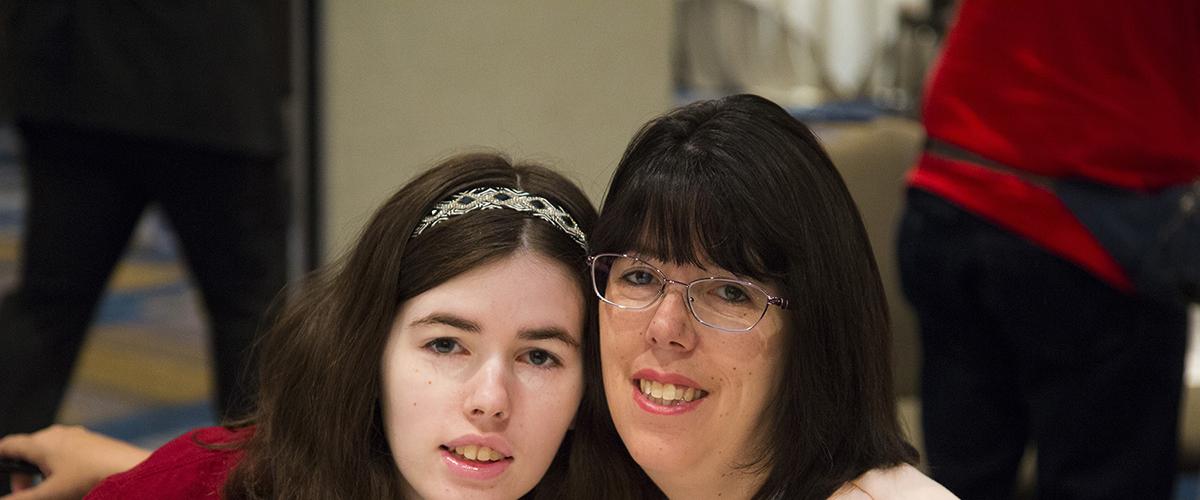Myotonic Dystrophy: Family Stories
Published on
Fri, 07/17/2020
It all started with the birth of my first and only child in 2007 at age 26. I noticed that my arms hurt constantly holding my newborn child, which then progressed to grip myotonia. I had read about myotonic dystrophy on the internet and felt sure I needed to be tested. Many months later, genetic testing proved I had DM2.
Published on
Fri, 06/19/2020
Liz Florence lives in Dallas, Texas, with her husband, and two sons, Sam, 18, and Will, 20. Sam was born with Congenital Myotonic Dystrophy. Will is unaffected by Myotonic Dystrophy (DM). "I feel very lucky because my husband and I are healthy and we have the energy and ability to take care of Sam and to be there for our other son, Will."
Published on
Tue, 05/05/2020
Myotonic Board Member David Herbert is using his background in business development and new ventures to help forge critical new partnerships for Myotonic. Understanding the economic and social impacts of DM is crucial to getting business working toward a cure.
Published on
Wed, 09/11/2019
After Julia Thorsness’ husband Jim died from complications of myotonic dystrophy at 59, she decided to put her professional and personal experience to work to help DM families.
Published on
Thu, 06/06/2019
When Luke Bolt was 13, he noticed his hands would lock in contraction with use and were weakening. When his mother Jodie heard about the problem, myotonic dystrophy was on the top of her list of possibilities.
Published on
Thu, 05/09/2019
Although Tim Haylon launched his first Facebook birthday fundraiser in 2018, they Haylon family already had a tradition of financially supporting myotonic dystrophy research.
Published on
Thu, 03/07/2019
It was more than five years ago when Jeremy Kleiber went to check on a friend who wasn’t answering his found. He discovered his friend’s body with the man’s three-year-old daughter on his chest, crying for him to wake up.
Published on
Thu, 01/17/2019
Chuck Hunt’s daughter Carly was an accomplished equestrian ranked 18th in the nation, but her struggles in school were growing.
Published on
Thu, 12/06/2018
When Suzanne Perkins’ 16-year-old daughter Eliza had trouble opening jars and closing car doors, she took the teenager to the doctor, confident she would pin the problem on too much texting. But when her doctor sent her to a neurologist, Eliza’s diagnosis came quickly and with a wallop.
Published on
Thu, 11/01/2018
Ask Israel Dubin about himself, and he’ll tell you he’s a Jewish, 65-year-old retired judge, father of three wonderful adult children, and husband to a great wife. What he’s likely not to mention is that he has myotonic dystrophy type 2 (DM2).

